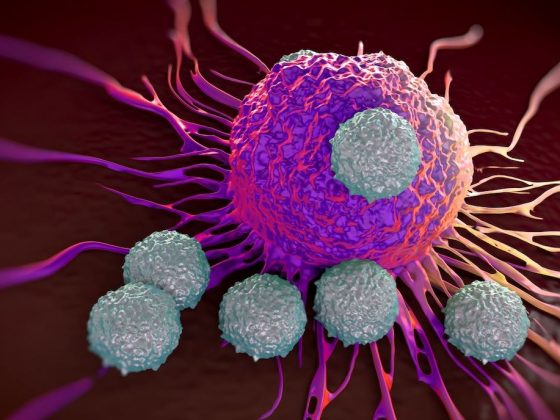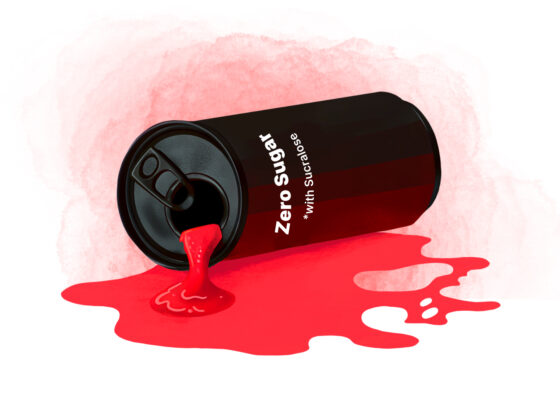Adding the CDK4/6 inhibitor ribociclib to standard-of-care adjuvant endocrine therapy for treatment of hormone receptor-positive HER2-negative early-stage breast cancer reduced risk of recurrence by 25%. The phase III NATALEE study, abstract LBA500, presented at the ASCO 2023 Annual Meeting, held June 2–6, showed for the first time that ribociclib combined with endocrine therapy improved outcomes for people with early-stage disease, including men and those whose cancer had not spread to the lymph nodes.
“These landmark results will fundamentally change how we treat patients with stage II and III HR-positive/ HER2-negative early breast cancer who are in need of new, well-tolerated options that prevent their cancer from coming back,” said Dennis Slamon, the study presenter, from UCLA David Geffen School of Medicine, Los Angeles, California. “Addressing this unmet need across such a broad patient population could help streamline treatment decisions for healthcare providers and keep many more at-risk patients cancer-free.”
HR-positive/ HER2-negative-breast cancer is the most common breast cancer subtype, accounting for around three quarters of cases. For patients with HR-positive / HER2-negative early breast cancer, current European Society for Medical Oncology and National Comprehensive Cancer Network treatment guidelines recommend more than five years’ adjuvant endocrine therapy following surgery. In addition, treatment with adjuvant chemotherapy may be recommended, according to recurrence risk and the likelihood of benefit.
Ribociclib is a small-molecule inhibitor that works by targeting CDK4 and CDK6 proteins in breast cancer cells, modulating growth. Prior research has demonstrated that ribociclib plus endocrine therapy yielded significant improvements in overall and progression-free survival in patients with HR-positive/ HER2-negative advanced breast cancer. The NATALEE study was designed to evaluate whether the combination would also benefit patients with early-stage disease. The study enrolled a broad population of patients including premenopausal and postmenopausal women and men with HR-positive/ HER2-negative breast cancers. Patients, who came from 20 different countries, included those with stage IIA disease (with either no nodal involvement and additional risk factors or with one to three involved axillary lymph nodes), or with stage IIB or stage III disease.
Between January 2019 and April 2021, 5,101 patients were randomised to receive either adjuvant ribociclib for three years, with hormone therapy for at least five years (n=2,549), or hormonal therapy alone (n=2,552). Participants received ribociclib 400 mg once daily on days 1 21 of a 28-day cycle followed by seven days off. The dose was lower than the 600-mg ribociclib dose typically used in metastatic settings. Endocrine therapy consisted of 2.5 mg letrozole per day or 1 mg anastrozole per day for five years or longer, with men and premenopausal women also receiving goserelin.
The three-year duration was chosen for NATALEE, Slamon explained, in contrast to adjuvant trials of the CDK4/6 inhibitors abemaciclib and palbociclib (which were administered for two years), as the extended duration was felt crucial “to prolong cell cycle arrest and drive more tumour cells into senescence or death”.
The prespecified interim analysis, planned after 425 invasive disease-free survival events (determined by the Standard Definitions for Efficacy End Points [STEEP] criteria) showed 7.4% of patients in the ribociclib arm (n=189) had a cancer recurrence vs 9.2% (n=237) in the hormonal therapy alone arm.
Three-year invasive disease-free survival rates were 90.4% for the combination treatment vs 87.1% for endocrine treatment alone, (HR=0.748; 95%CI 0.618–0.906; P=0.0014).
The three-year distant disease-free survival rate was 90.8% for the combination treatment vs 88.6% for endocrine treatment (HR=0.739; 95%CI 0.603-0.905; P=0.0017).
The overall survival results at 30.4 months showed a trend for improvement in the combination arm (HR=0.759; 95%CI 0.539–1.067; P=0.0563). Additional follow-up is planned.
The findings, Slamon noted, were consistent across subgroups including disease stage, menopausal status, and node status.
The most common adverse event of any grade in patients assigned ribociclib plus endocrine therapy was neutropenia (any grade in 62.1%; grade 3 in 43.0%). This was markedly lower than that found in MONALEESA trials in advanced breast cancer, which used 600 mg ribociclib (all-grade rate of neutropenia 74%, with 60% grade 3 or higher).
Nadia Harbeck, the discussant from LMU University Hospital, Munich, Germany, said that the results were good news for patients as there are now two CDK4/6 inhibitors (ribociclib and abemaciclib), “that increase the chances for cure in this setting, both with an acceptable safety profile”.
Further research, she said, was needed into optimal therapy management to allow subjects to complete the intended duration of therapy and identify individuals remaining at risk despite adjuvant chemotherapy. One omission, she added, was that the trial had not explored whether CDK4/6 inhibitors could be used in place of chemotherapy.
The ongoing ADAPTcycle trial (NCT04055493) is evaluating whether patients with intermediate-risk early breast cancer with the molecular HR-positive/ HER2-negative subtype benefit from ribociclib plus endocrine therapy versus standard-of-care chemotherapy. “I think these results will be complementary to NATALEE,” said Harbeck. For patients using CDK4/6 inhibitors in early- stage breast cancer, she added, there would be a need to introduce alternative CDK4/6 inhibitors in the metastatic setting.












